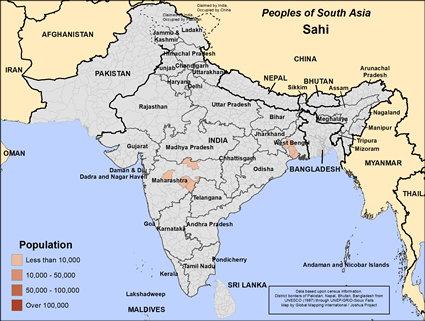The Hindu Sahi people live in various regions of India and have traditionally been involved in agriculture and small-scale trade. Over generations, they have maintained strong ties to their land, with farming as the cornerstone of their livelihood. While modern economic changes have influenced the community, many Sahi families continue to rely on agriculture and manual labor for their daily sustenance.
The Sahi people primarily work as farmers, cultivating crops such as rice, wheat and maize. Their farming practices align with seasonal cycles, and families work together during planting and harvest periods. In addition to farming, some Sahi families engage in small-scale trade or work as laborers in nearby towns to supplement their income.
In rural areas, the Sahi people live in villages with extended families often residing nearby. Homes are typically constructed from locally available materials like brick, mud and thatch. Daily life revolves around agricultural work, family responsibilities and religious practices. While younger generations increasingly seek education and employment opportunities in urban centers, many continue to assist their families during key farming seasons.
The Sahi people practice Hinduism, worshiping deities like Vishnu, Shiva and local gods associated with agriculture and nature. Religious festivals such as Diwali, Holi and Navaratri are significant in their community, bringing families together for worship and celebration. The Sahi people's religious practices are closely tied to their agricultural lifestyle, with prayers and rituals performed to seek blessings for successful harvests and the well-being of livestock.
Temples and shrines serve as important spiritual centers where the community gathers for religious observances. The Sahi people follow traditional Hindu rituals, often led by local religious leaders, who guide the community in their spiritual practices.
The Sahi people face challenges related to economic development, education and healthcare. Many still use traditional farming methods, which makes them vulnerable to environmental changes, such as droughts or poor soil conditions. Access to modern farming tools, irrigation systems and training in sustainable agricultural practices would help improve crop yields and economic stability.
Education is another critical need in Sahi communities. Schools in rural areas are often under-resourced, limiting the opportunities available to Sahi children. Expanding access to quality education would allow younger generations to pursue careers beyond agriculture and improve their overall economic prospects.
Healthcare services are also limited, with families frequently traveling long distances to access medical care. Improving healthcare infrastructure and making services more accessible would significantly benefit the Sahi community, enhancing their overall well-being.
Pray for their educational and medical needs to be met.
Pray that God intervenes in their lives and helps them understand his value and worth in our lives.
Pray that their hearts soften up to know more and accept Jesus as their Lord and savior.
Pray for a church planting movement to rise up in the Sahi homelands.
Pray for the Lord to thrust out workers to the Sahi community.
Scripture Prayers for the Sahi in India.
Ethnologue: Languages of the World
Reports from Indian NGOs on rural communities
Academic research on agricultural development in India
| Profile Source: Joshua Project |











